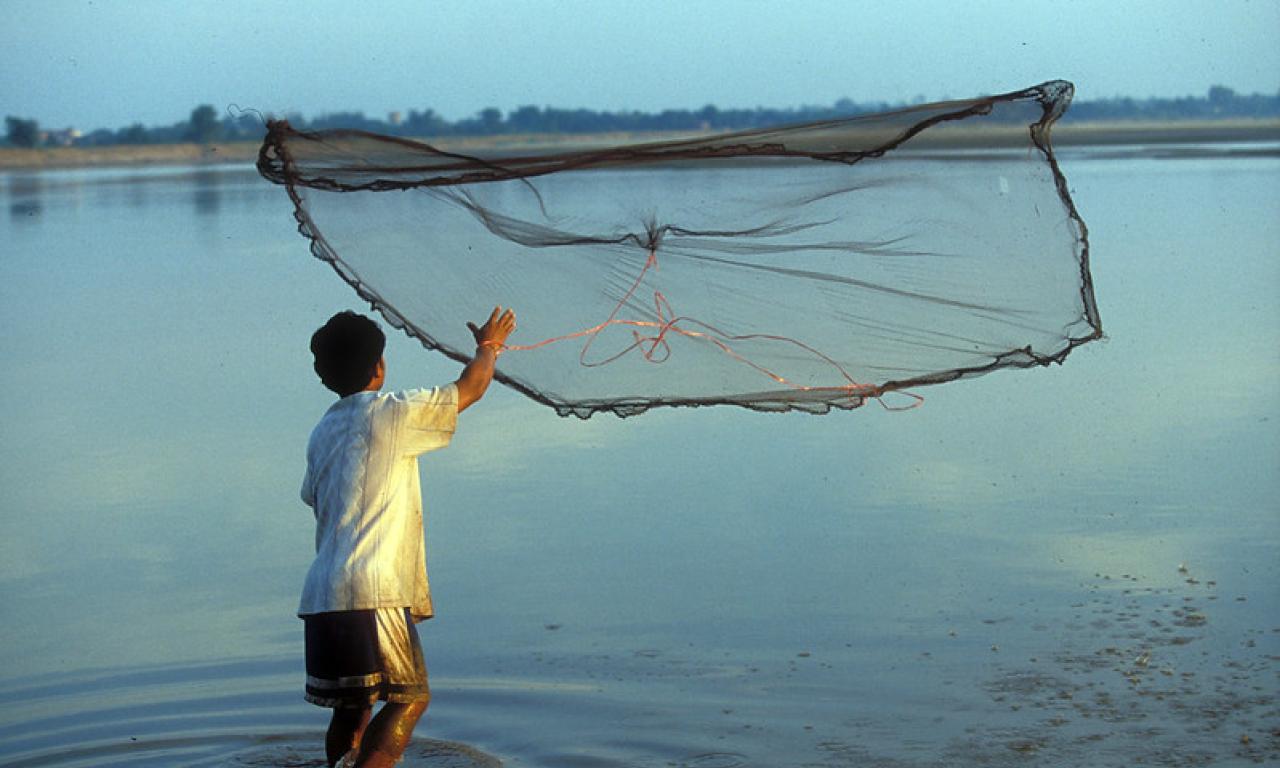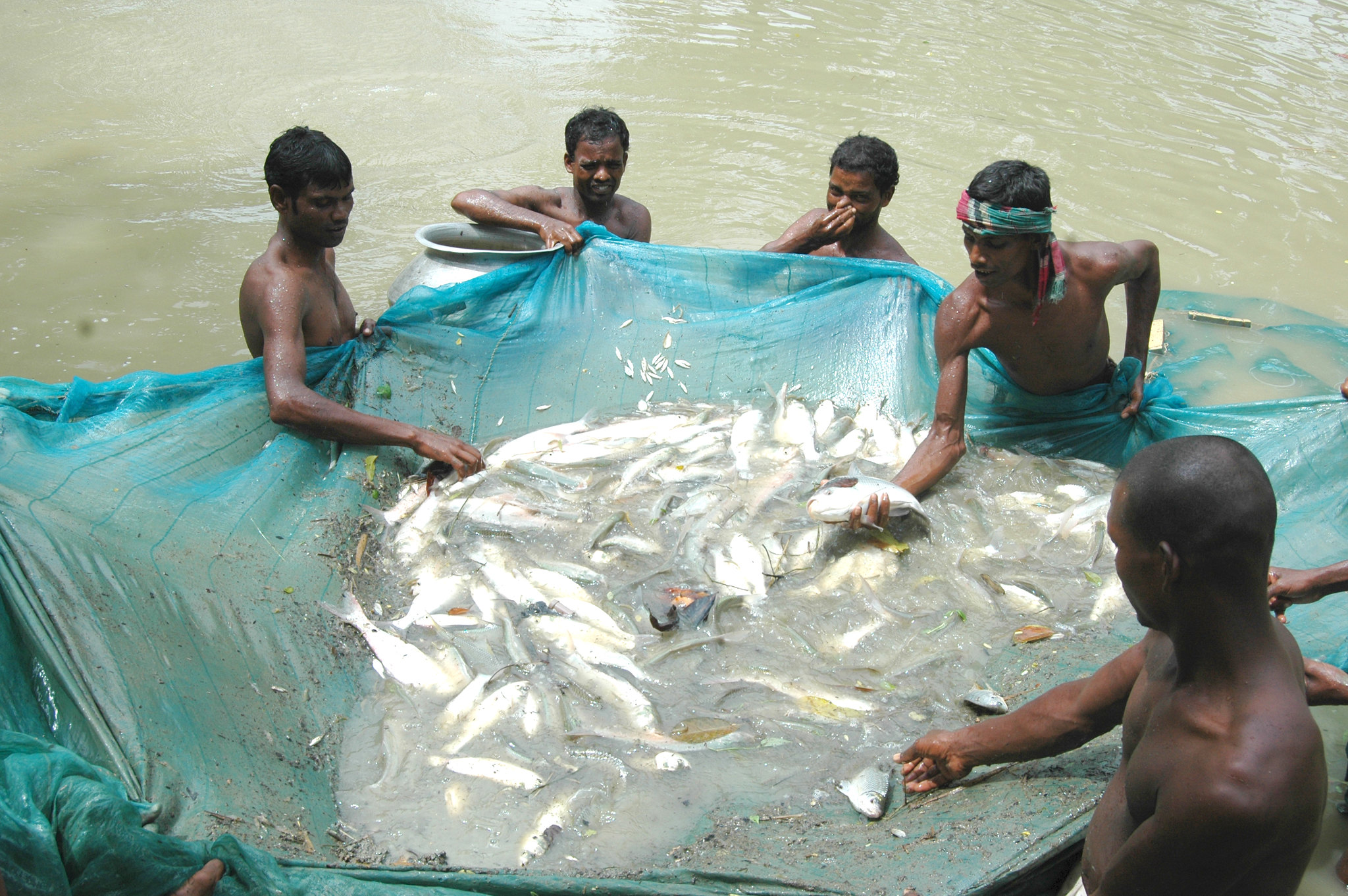
- The role of aquatic foods in tackling malnutrition, cardiovascular disease and climate risk is still underutilized, finds new Blue Food Assessment (BFA) paper.
- Published in Nature, the paper examines the potential for aquatic foods to deliver benefits and improvements across four policy dimensions.
- This latest paper synthesizes the findings of the entire BFA to provide a solid scientific base and an interactive tool to assist policymakers in exploring aquatic food-related data from their own countries.
Policymakers addressing food system challenges now have access to new analyses and online tools that demonstrate the role of aquatic foods in combating nutrient deficiencies and cardiovascular disease as well as lowering the sector’s climatic and environmental impacts.
Newly published research by the Blue Food Assessment (BFA) team of experts compiles and analyzes a variety of current national data to discover the four main functions that aquatic foods may play in improving the performance and sustainability of national food systems.
“This paper draws on a wealth of studies and publications to emphasize the multiple and diverse benefits of aquatic foods. Importantly, it outlines policy actions for ensuring that aquatic foods play an important role in nourishing people and our planet,” said co-author Shakuntala Haraksingh Thilsted, CGIAR’s director for nutrition, health and food security impact area platform.
Examining the potential of aquatic foods across four policy dimensions

The paper, titled ‘Four ways blue foods can help achieve food system ambitions across nations’, was published in Nature and examines the potential for aquatic foods to deliver benefits and improvements across four policy dimensions: B12 and omega-3 nutrient deficiency, high rates of cardiovascular disease associated with excessive red – particularly processed – meat consumption, high environmental impacts and climate adaptation and resilience to safeguard the nutritional, economical and livelihoods contribution of aquatic food systems across nations.
“Of the four policy objectives highlighted in the paper, WorldFish’s mission is particularly aligned with the fourth: safe-guarding (and improving) aquatic food contributions to nutrition, just economies, livelihoods and cultures in a world where climate – and much else – is changing rapidly,” said co-author Eddie Allison, WorldFish’s acting director of sustainable aquatic food systems.
The paper’s researchers discovered that policymakers in countries with high environmental food footprints and high levels of cardiovascular disease, such as developed countries in Europe and North America, should focus on improving the production and access to aquatic foods, which can serve as a substitute for red meat consumption.
Policymakers in countries with large environmental food footprints and nutrient deficiencies, on the other hand, could encourage more diversity of aquatic food production and promote more affordable aquatic foods. According to the findings, farmed bivalves or tiny pelagic fish like sardines and herrings can help less privileged communities while leaving minimal environmental effects.
Assisting policymakers in exploring aquatic food-related data

“Aquatic foods can play important roles in our diets, societies and economies, but what exactly this looks like will differ greatly from one country and local setting to another,” said Beatrice Crona, lead author and co-chair of BFA.
“Our goal is for policymakers to fully understand the diverse contributions that aquatic foods can make but also for them to consider the trade-offs that need to be negotiated to really make the most of the opportunities that aquatic foods provide,” added Crona, who is also a professor at the Stockholm Resilience Centre at Stockholm University.
The BFA is an international joint initiative bringing together over 100 scientists from more than 25 institutions. Led by the Stockholm Resilience Centre at Stockholm University, Stanford University and EAT, BFA supports decision-makers in evaluating trade-offs and implementing solutions to build healthy, equitable and sustainable food systems.
WorldFish has been a key research contributor to BFA, with seven of its scientists among the authors of the papers released. WorldFish has also guided the direction of the study through representation on the BFA Scientific Leadership Team.
This latest paper synthesizes the findings of the entire BFA to provide a solid scientific base and an interactive tool to assist policymakers in exploring aquatic food-related data from their own countries and being inspired to design policies and actions that can realize the contributions aquatic foods can make to food systems worldwide.
